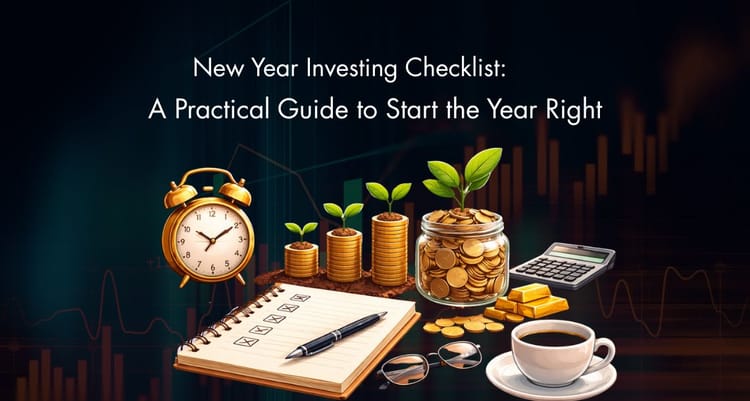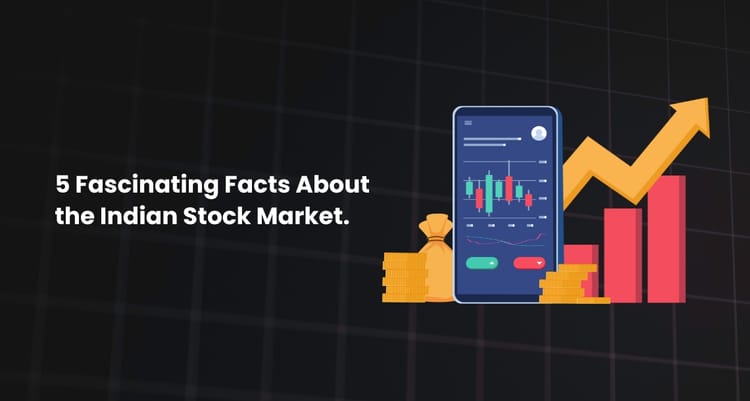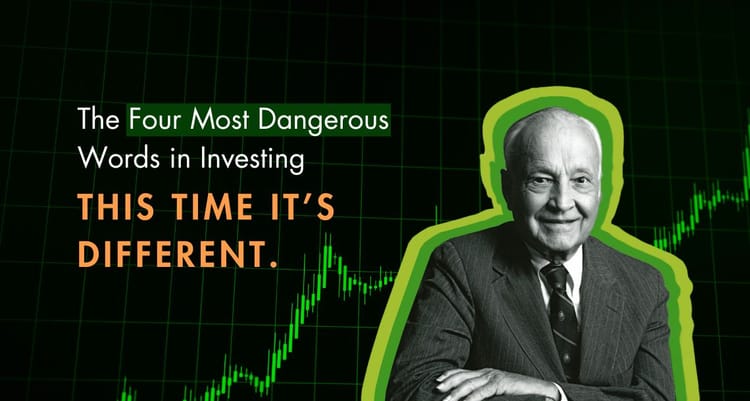The Secret to Growing Wealth: The Magic of Compounding Interest

Are you scratching your head, wondering how to make your hard-earned cash work harder for you? Well, take a deep breath and relax.... we're unraveling the mystery behind one of the coolest concepts in finance: compounding interest.
Imagine this: You've set aside ₹1,000 and decided to dip your toes into the exciting world of investing. Let's say you invest that money in the stock market and it gives you a sweet 5% return each year. Not too shabby, right? At the end of year one, you're sitting pretty with ₹1,050 in your investment account. But wait, it gets even juicier!
In year two, you don't just earn 5% on your initial ₹1,000 investment. Nope, compounding interest kicks in, and you also earn 5% on the ₹50 interest you earned in year one. So now, instead of pocketing ₹50 in interest, you're raking in ₹52.50. See where we're going with this?
Still with me? Great! Now, let's talk about the real magic of compounding interest.
The longer you keep your money invested, the more it grows exponentially. It's like planting a tiny seed and watching it sprout into a majestic oak tree. Except in this scenario, instead of acorns, you're harvesting dollars.
Remember what the brilliant Albert Einstein once said? "Compound interest is the eighth wonder of the world. He who understands it, earns it; he who doesn't, pays it."
So, how can you harness the power of compounding interest? It's simpler than you might think.
Start by investing early and investing regularly. Whether you choose stocks, bonds, or a high-yield savings account, the key is to let your money work for you over time.
And there you have it – the mystery of compounding interest unlocked! It's not complicated, but it's incredibly powerful. So why wait? Start investing like a pro today, and thank yourself later.
Remember, the journey to wealth begins with just a single dollar and a whole lot of compounding interest. Happy investing, my friend!
Frequently Asked Questions (FAQ)
1. What is compounding interest?
Compounding interest is the process where the interest you earn on your initial investment also earns interest. Over time, this leads to exponential growth in your investment.
2. How does compounding interest work?
Compounding interest works by reinvesting the interest earned, so that you earn interest on both your initial principal and the accumulated interest from previous periods. This creates a snowball effect, where your investment grows faster over time.
3. Can you give an example of compounding interest?
Sure! If you invest ₹1,000 at a 5% annual return, at the end of the first year, you would have ₹1,050. In the second year, you earn 5% on ₹1,050, giving you ₹1,102.50. Each year, you earn interest on the new total, which includes the previous interest.
4. Why is compounding interest referred to as the "eighth wonder of the world" by Albert Einstein?
Albert Einstein called compounding interest the "eighth wonder of the world" because of its powerful ability to grow wealth over time. Those who understand it can significantly increase their wealth, while those who don't miss out on this powerful financial tool.
5. How can I harness the power of compounding interest?
You can harness the power of compounding interest by:
- Investing early: The sooner you start investing, the more time your money has to grow.
- Investing regularly: Making consistent contributions to your investments can significantly boost the compounding effect.
- Reinvesting earnings: Keep your returns invested to maximize growth.
6. What types of investments can benefit from compounding interest?
Types of investments that can benefit from compounding interest include:
- Stocks: Through capital appreciation and reinvested dividends.
- Bonds: Through interest payments.
- High-yield savings accounts: Through earned interest.
- Mutual funds and ETFs: Through reinvested dividends and capital gains.
7. How does the length of time affect compounding interest?
The length of time greatly affects compounding interest. The longer your money remains invested, the more time it has to compound, leading to greater exponential growth.
8. Is there a difference between simple interest and compounding interest?
Yes, there is a difference. Simple interest is calculated only on the initial principal, while compounding interest is calculated on the initial principal plus any accumulated interest from previous periods.
9. What are the benefits of compounding interest?
The benefits of compounding interest include:
- Exponential growth of investments: Your money grows faster over time.
- Increased wealth: Small initial investments can grow significantly.
- Passive income: Your money works for you, generating returns without additional effort.
10. Are there any risks associated with compounding interest?
While compounding interest itself is not risky, the investments used to generate compounding returns may carry risks. It's important to choose investments that align with your risk tolerance and financial goals.
11. How can I start investing to take advantage of compounding interest?
To start investing and take advantage of compounding interest:
- Open an investment account with a reputable brokerage.
- Choose investments that offer the potential for compounding returns, such as stocks, bonds, or mutual funds.
- Make regular contributions to your investment account.
- Reinvest any earnings to maximize growth.
12. How can I stay disciplined with my investments?
You can stay disciplined by:
- Setting clear financial goals.
- Automating your contributions to your investment account.
- Avoiding emotional decision-making during market fluctuations.
- Consulting with a financial advisor for personalized guidance.
13. How can I track the growth of my investments with compounding interest?
You can track the growth of your investments by regularly reviewing your investment account statements, using financial apps or tools that calculate compounding returns, and consulting with your financial advisor to ensure you stay on track with your goals.






Member discussion